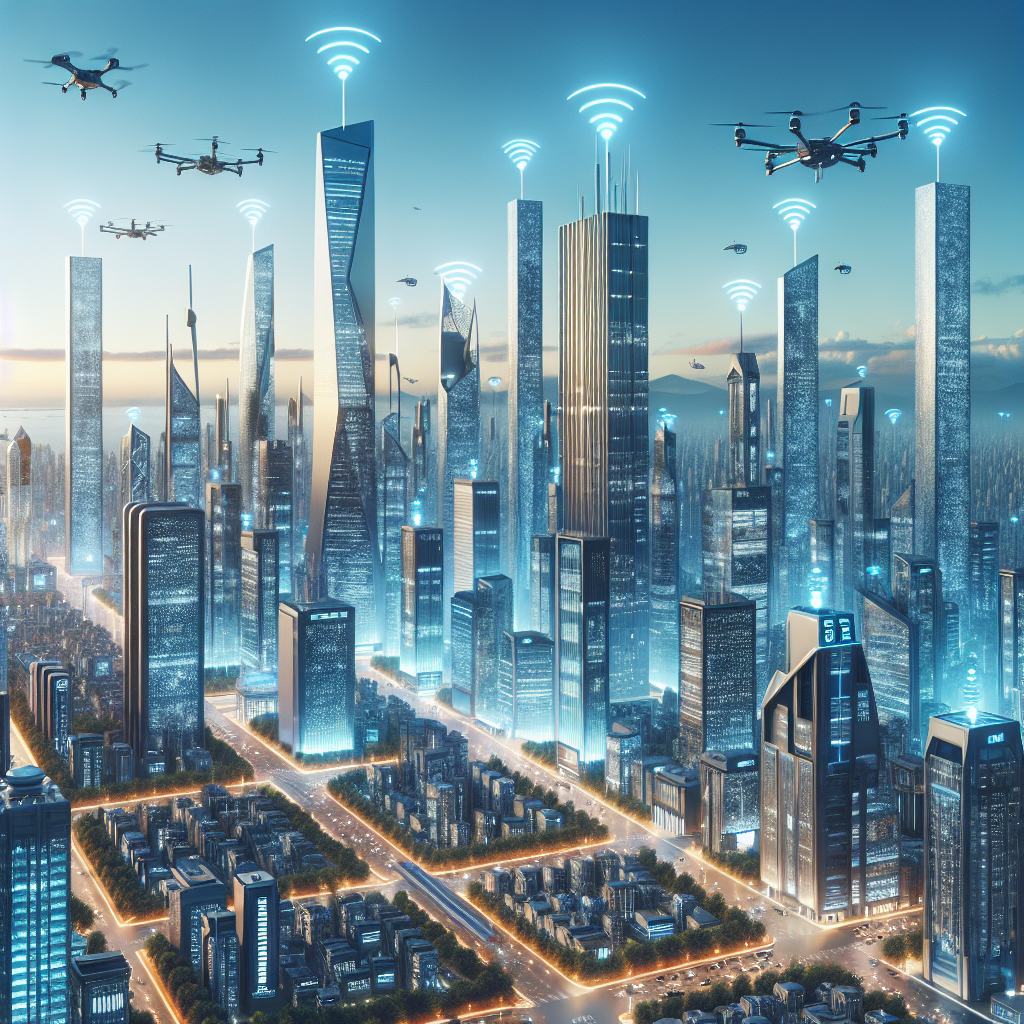Introduction
The evolution of technology has given rise to smart cities, which are urban areas that utilize digital technology to enhance performance and well-being. With the introduction of 5G, the potential for transformation within these smart cities has expanded significantly. This article explores how 5G technology is revolutionizing smart cities, paving the way for an interconnected urban landscape that promises improved services, enhanced quality of life, and innovative solutions.
What is 5G Technology?
5G, or fifth-generation technology, is the latest upgrade in mobile network technology. It boasts a range of advantages over its predecessor, 4G, including:
- Higher Speeds: 5G networks can achieve speeds exceeding 10 Gbps, making data transfer faster than ever.
- Lower Latency: 5G offers latency as low as 1 millisecond, enabling real-time communication.
- Increased Capacity: 5G can connect a significantly larger number of devices simultaneously without compromising speed or performance.
- Enhanced Reliability: The network reliability is markedly improved, crucial for critical applications in urban infrastructure.
Transforming Urban Infrastructure
Smart Traffic Management
One of the most immediate applications of 5G in smart cities is in traffic management. Traditional traffic systems can be quite inefficient, leading to congestion and delays. 5G technology allows for:
- Real-Time Data Analysis: Traffic sensors powered by 5G can analyze data in real-time to optimize traffic flow.
- Connected Vehicles: 5G enables vehicles to communicate with each other and with traffic signals, reducing accidents and improving road safety.
Improved Public Safety
Enhanced connectivity with 5G greatly contributes to public safety measures:
- Smart Surveillance Systems: Cities can implement AI-driven surveillance systems connected through 5G, improving the capabilities of law enforcement.
- Emergency Response: Faster response times can be achieved when first responders have immediate access to relevant data and resources.
Enhancing Public Services
Smart Waste Management
5G technology facilitates smart waste management, allowing cities to monitor waste levels in bins and optimize collection routes based on real-time data. This efficiency reduces costs and minimizes environmental impact.
Efficient Energy Use
Smart grids powered by 5G enable cities to manage energy consumption effectively. This includes:
- Real-Time Monitoring: Utility companies can monitor usage patterns and adjust supply accordingly, reducing waste.
- Integration of Renewable Energy: 5G enhances the integration of renewable energy sources, providing a more balanced energy distribution network.
Fostering Innovation and Economic Growth
Supporting Startups and Enterprises
The high-speed and low-latency features of 5G create an optimal environment for tech startups and businesses. Enhanced connectivity allows for:
- New Business Models: Businesses can utilize IoT devices and big data analytics to innovate and create new revenue streams.
- Enhanced Customer Experiences: Businesses can tailor services and products based on real-time customer feedback collected through data analytics.
Promoting Smart Tourism
5G enables cities to offer immersive experiences for tourists through augmented reality (AR) and virtual reality (VR). Smart city applications can provide:
- Interactive City Tours: Utilizing AR, tourists can access real-time information about landmarks and attractions.
- Enhanced Navigation: Improved connectivity helps in providing seamless navigation solutions to visitors.
Improving Connectivity
As smart cities evolve, the importance of enhanced connectivity becomes paramount. 5G technology fosters greater interconnectedness among devices, leading to:
- IoT Integration: Countless IoT devices can be connected and communicate, leading to smarter utilities and transportation systems.
- Remote Monitoring: Critical infrastructure can be monitored remotely, enabling faster adaptive responses to issues.
Sustainability and Environment
Promoting Environmental Health
5G networks can also significantly contribute to environmental sustainability. Some notable impacts include:
- Pollution Monitoring: Sensors can provide real-time data on air and water quality, allowing for quicker intervention.
- Smart Agriculture: Cities can implement precision farming solutions that optimize land use and conservation.
Challenges Ahead
While the benefits of 5G technology in smart cities are numerous, challenges exist:
- Infrastructure Costs: The initial investment in 5G hardware and infrastructure can be substantial.
- Cybersecurity Concerns: Increased connectivity poses higher risks for cyber threats that need addressing through robust security protocols.
Conclusion
5G technology promises immense transformation for smart cities by improving connectivity, enhancing public services, and fostering economic growth. However, it is critical for policymakers, industry stakeholders, and researchers to collaborate to address the challenges associated with its implementation. As cities continue to evolve into smarter and more connected environments, the role of 5G technology will be pivotal in shaping their future.

